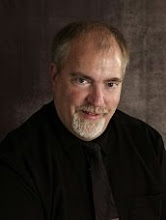Is Big Brother watching...or someone more powerful?

On December 15, the day on which the citizens of Iraq went to vote for their parliamentary representatives, the New York Times decided to go to press with another story. The “Grey Lady” published a scoop they had been holding for a year—the news that the Bush Administration had been eavesdropping on telephone conversations involving people (including, presumably, US citizens) in the United States and suspected Al Qaeda operatives abroad. When the news broke, it released the usual storm of protest from the President’s political enemies about how civil liberties were being violated and that we are one step away from a dictatorship. Some extreme voices, including one who ran for president (and, I hear, was in Vietnam), started to call for impeachment. However, most Americans, including most Democrats, seem to support Bush’s efforts to protect the country by preventing terrorist plots from reaching full fruition.
The ultimate question is going to be a constitutional one. What, specifically, are the powers of the executive branch during wartime? To what extent can the legislative branch limit the powers of the executive, as the Foreign Intelligence Surveillance Act (1978) attempted to do? Can the legislative branch demand that the executive receive permission from the judicial before wiretapping the phones of suspects? It also should be noted that, even though the FISA legislation was passed during the presidency of Democrat Jimmy Carter, both Carter and Clinton conducted surveillance of suspects without warrants, and Clinton associate attorney general John Schmidt has written that what Bush’s administration has done is within the law.
Try to consider this question from the personal privacy point of view. Would you want someone examining your e-mail, or your on-line journal or blog comments, or listening in on your cell phone conversations? What about tracking the web sites you view, or the books you check out of the public library? Most people would be uncomfortable with what they perceive to be an invasion of privacy. On the other hand, if someone is checking on web sites that are operated by Al-Qaeda, and posts “death to America” comments on a blog, and exchanges e-mail and text messages with suspected terrorists, I think most Americans would feel that their government had failed them if such a person was able to commit violent terrorist acts, and was able to plan and conspire to do so using normal media of communication.
In the book of Romans, the apostle Paul writes, “Do you want to be free from fear of the one in authority? Then do what is right and he will commend you.” I may be completely off base with this, but it seems like the ones who are most concerned about “privacy” and its “invasion” are those who have something to hide. Would you care if someone looked into your locker at school? Would you care if your parents read your instant message conversations, or are you one of those kids who use abbreviations like “POS” (parent over shoulder) to make sure your chat partner doesn’t say something your parents would give you the third degree about? Do you clean your history every time you log off from the family computer, or can a tech-savvy parent find out what you’ve been looking at? Ultimately, we must surely know that nothing we say or see, write or do escapes the notice of our omniscient God.
I believe that part of the sad legacy of Roe v. Wade, the Supreme Court decision that legalized abortion, was to create a belief that the constitution has a guarantee of a right of privacy that supersedes all others. I also hope that we can all strive to live lives of which we are not embarrassed to expose to the light, and that nothing we do in secret is something we would be ashamed to have others aware if in public. And shouldn’t parents be on the lookout for influences that endanger their children’s souls?
Comment either on the controversy regarding the Bush surveillance or on the general issue of privacy. You can also comment anonymously if you want to share something regarding yourself and your parents and whether the issue of privacy has ever provoked conflict in your home.


<< Home